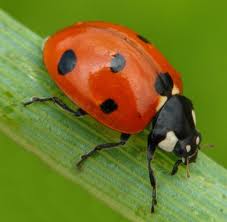The Kill Jar

As a young boy, I spent most of my time unsupervised. I had a few friends that were in the same situation. Together we found ways to entertain ourselves. Not all of them were savory.
One of the ways we entertained ourselves was by torturing insects. For example, simple creatures like lady bugs were captured, a straight pin driven through the center of their bodies, with the narrow end of the pin stuck into an ordinary eraser.
Sometimes we did the same with very small butterflies.
In a miniature scale, we created our own Golgotha.
We did this with an innocently sadistic sense of curiosity. We were curious how the bug would react. No one told us how or why this was perverse.
Friends and I also created our own small Coliseum, where we could throw a bunch of different insects together to see how they would behave. The arena was confined to a jar with a lid. Anything we could catch would go into the enclosure.
We'd locate red ant hills and include a number of specimens. Pill bugs, spiders, wasps, moths, caterpillars all became tiny gladiators. We peered into the jar dispassionately. There was no thought of doing something wrong.
If the action seemed ordinary or dull, we sometimes dropped a match into the kill jar, screwed the lid on tight, then ignited the match head using a focused beam of sunlight as supplied by a magnifying glass. Once the match ignited, everything inside the kill jar would die within one or two seconds. Therein, we created our own miniature Auschwitz.
Looking back through the years at these unrecognized cruelties, I have to wonder what propelled my pals and myself to come up with torturing helpless life forms as a form of entertainment. Why did we not possess an innate sense of repulsion over our pass-times? We obviously needed some adult guidance to make us understand why these practices were immoral. Someone needed to teach us the fundamentals about ethics and an appreciation of all life forms. We never received this instruction.
Only gradually did we develop a conscience and experience an odd sense of repulsion over our actions.
Today, I think I may over-compensate a bit for my earlier deeds. When a spider, cricket, beetle is discovered inside my home, I take pains to capture the insect, as opposed to merely squashing it. Captured, I let the creature free to the outside world.
But, I am not entirely merciful. If I find a string of black ants streaming into my cupboards, I will wipe them all out with an insecticide. If I find my kitchen has been invaded with cockroaches, I have no problem placing bait traps around so that they can carry poison back to their nests.
There is a clearly definable difference between what I engaged in as a youth and my actions as an adult. I am not happy about having to wipe out a colony of ants or cockroaches, but they took the first step by invading my home.
I do not cry over their loss because I know that there are billions more of their kind. There is virtually no chance of these species becoming extinct.
The focus of this Hub is really about the unconscious state of a young boy who does not innately understand right from wrong. I never felt as if my "play" was linked with any malice. I would not have even understood the word back then. Happily, this state of unconsciousness did not extend into the area of mistreating small animals -- not for myself -- although I witnessed one of my friends plunging into this direction, e.g., using BB guns to shoot down small birds then breaking their necks bare handedly -- or using a sling shot to separate a female, nursing dog from her pups.
All the same, I have to wonder why we are not all born with a built-in sense of care and wonderment regarding even the lowest level of life forms. What concerns me is if we are not inherently born with a respect for the lowest of life forms, how does this translate into a feeling of compassion for human beings who seem very much unlike us?
Are we anything more than killer apes? I sure hope so.
Perhaps a little good parenting would have gone a long way. But, for latch-key kids, we didn't receive any guidance, and acted upon our own unconscious motivations -- odd and abhorrent as they may have been.







